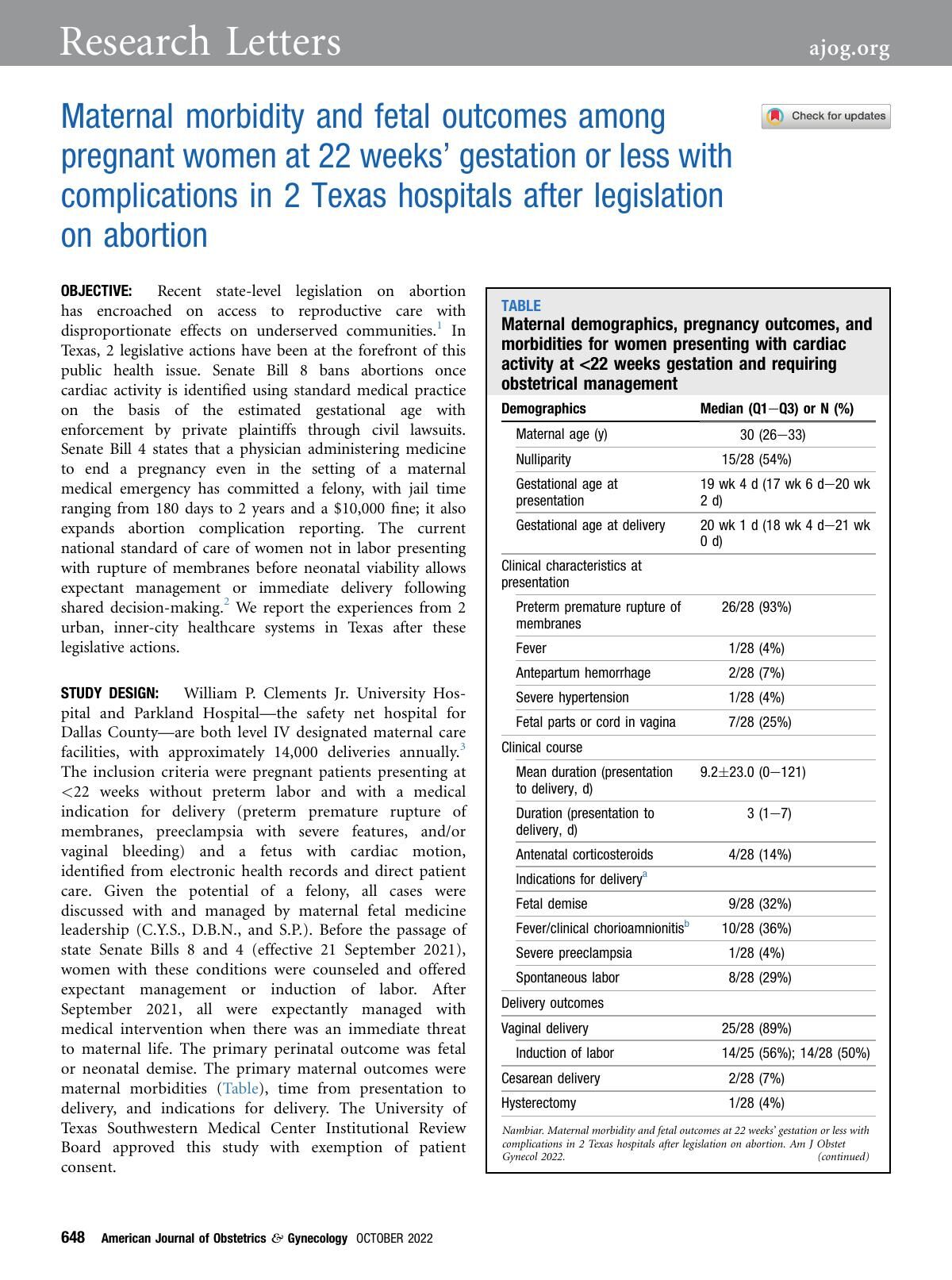Republican state lawmakers’ attempts to roll back some of Tennessee’s abortion legislation — which is among the most restrictive in the country — have slowed down, despite the medical community stressing the urgency of the situation.
Tennessee was one of 13 states with an abortion ban that was triggered when Roe v. Wade was overturned in 2022. Many doctors, advocates and legal experts consider Tennessee’s law criminalizing doctors for performing abortions to be the strictest in the country. And while a bill that would allow for exceptions in cases of rape or incest has been put on ice until next year, legislation permitting medical exceptions for abortions is currently, and contentiously, making its way through state House and Senate committees.
According to medical professionals, House Bill 883, which passed in the Population Health Subcommittee in early February, contains the ideal language needed to provide the best health care possible to their patients. The bill was supposed to be heard in the House Health Committee on March 1, but following pressure from anti-abortion lobbyists Tennessee Right to Life and delays in the Senate, it has been deferred until March 22.
“With every legislative delay, and clarifying and cleaning up our Tennessee abortion laws, women and patients are suffering,” says primary care physician Amy Gordon Bono, who serves on the boards of advocacy groups Forward Tennessee and Protect My Care. “We are seeing increased maternal morbidity. We see women losing their uteruses unnecessarily because they get an infection that could have been prevented at the start.” Bono says HB 883 is the minimum requirement for physicians to adequately and ethically care for pregnant patients.
One of the things the bill would do is delete the “affirmative defense” language currently used in the state’s abortion ban. This language means that if a doctor performs an abortion, no matter the circumstances, they can be charged with a felony and will have to defend their actions in court. HB 883 would instead allow doctors to use their “good faith” judgment when treating a patient.
“I don’t think people always appreciate how pregnancy can really be a life-threatening condition,” says Bono. “I mean, it’s certainly a medical condition that requires monitoring. … We’re really trying to prioritize medical complications of pregnancy. We’re trying to prioritize enabling that mother to be able to survive her pregnancy.”
The “good faith” language does not currently appear in the Senate version of the bill, which Bono refers to as the legislation’s “watered-down” version. She explains that this “good faith” language is vital to doctors being able to provide patients with the best treatment possible, and that the “reasonable standard” language used in the Senate version is restrictive and disrespectful to the patients.
“As a clinician, I know that I can have the very same clinical situation but have a different patient in front of me,” says Bono. “And I have to make a different decision in creating my plan of care because my patient is different. Good-faith medical judgment is good for the doctor. It’s good for the patient. It should be good for our government.”
But increasing pressure from the Tennessee Right to Life lobby is muddying the waters, to say the least. In February, the group sent letters to Republican legislators in an attempt to turn them against the legislation, and even went so far as to threaten members of the Republican supermajority with negative ratings on the group’s so-called legislative score card if they choose to support the bill. These threats received immediate backlash from House Speaker Cameron Sexton (R-Crossville), who has publicly supported the House version of the bill.
Sexton and Sen. Richard Briggs (R-Knoxville) have both been working to amend Tennessee’s abortion ban following reports that state Attorney General Jonathan Skrmetti advised Republican legislators that the current law would be difficult to defend in court. Skrmetti pointed to a similar law in Idaho, which was blocked by a judge.
But the GOP is split. Multiple Republican leaders have voiced opposition to making any changes to the current law, including Gov. Bill Lee, Senate Speaker Randy McNally (R-Oak Ridge) and Sen. Todd Gardenhire (R-Chattanooga). Gardenhire chairs the Senate Judiciary Committee, where multiple bills attempting to loosen abortion restrictions were killed last week. They say they would rather wait a year or two and see what happens.
A study in Texas shows that state’s abortion laws, which are very similar to Tennessee’s, are associated with dramatic increases in maternal morbidity rates. Bono says a “wait and see” approach will be catastrophic to not only women’s health, but the future of health care in the state.
“I talked to a doctor this morning on the way to work,” says Bono. “She met with her accountant yesterday to figure out if she could take an early retirement. The chilling effect that is taking place in our state is immediately being felt with patients suffering, but the long-term effects are going to be doctors leaving medicine, leaving the state, and new physicians not coming in to replace them.”






